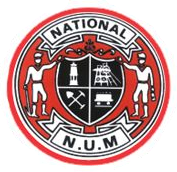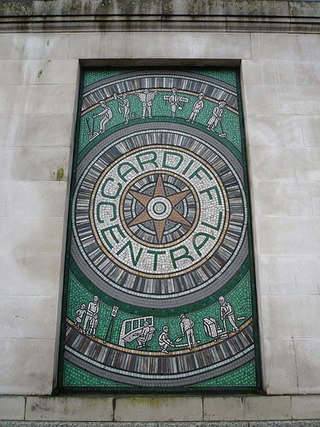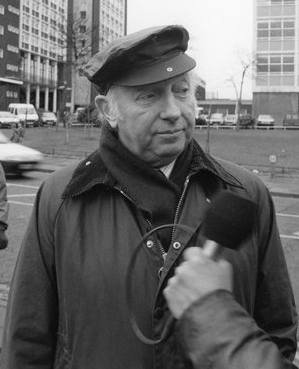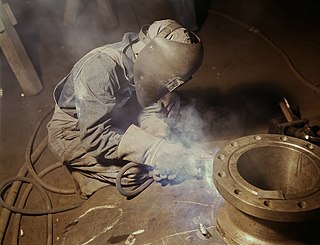Related Research Articles
The miners' strike of 1984–1985 was a major industrial action within the British coal industry in an attempt to prevent colliery closures. It was led by Arthur Scargill of the National Union of Mineworkers (NUM) against the National Coal Board (NCB), a government agency. Opposition to the strike was led by the Conservative government of Prime Minister Margaret Thatcher, who wanted to reduce the power of the trade unions.

United Kingdom labour law regulates the relations between workers, employers and trade unions. People at work in the UK can rely upon a minimum set of employment rights, which are found in Acts of Parliament, Regulations, common law and equity. This includes the right to a minimum wage of £9.50 for over-23-year-olds from April 2022 under the National Minimum Wage Act 1998. The Working Time Regulations 1998 give the right to 28 days paid holidays, breaks from work, and attempt to limit long working hours. The Employment Rights Act 1996 gives the right to leave for child care, and the right to request flexible working patterns. The Pensions Act 2008 gives the right to be automatically enrolled in a basic occupational pension, whose funds must be protected according to the Pensions Act 1995.

Sir Kevin John Barron is a British Labour Party politician and former coal industry worker. He was the Member of Parliament (MP) for Rother Valley from 1983 until 2019.

The National Union of Mineworkers (NUM) is a trade union for coal miners in Great Britain, formed in 1945 from the Miners' Federation of Great Britain (MFGB). The NUM took part in three national miners' strikes, in 1972, 1974 and 1984–85. Following the 1984–85 strike, and the subsequent closure of most of Britain's coal mines, it became a much smaller union. It had around 170,000 members when Arthur Scargill became leader in 1981, a figure which had fallen in 2015 to an active membership of around 100.

Taff Vale Railway Co v Amalgamated Society of Railway Servants [1901] UKHL 1, commonly known as the Taff Vale case, is a formative case in UK labour law. It held that, at common law, unions could be liable for loss of profits to employers that were caused by taking strike action.

Under the Constitution of Finland, everyone is entitled to have their case heard by a court or an authority appropriately and without undue delay. This is achieved through the judicial system of Finland.

Harpal Brar is an Indian communist politician, writer and businessman, based in the United Kingdom. He is the founder and former chairman of the Communist Party of Great Britain (Marxist–Leninist), a role from which he stood down in 2018.
Amalgamated Society of Railway Servants v Osborne [1910] AC 87 is a UK labour law case, which ruled that it was unlawful for trade unions to use funds raised from their subscriptions for political purposes.
O'Kelly v Trusthouse Forte plc [1983] ICR 728 was a UK labour law case, in which a bare majority held that a requirement for a contract is "mutuality of obligation" between the parties, which was thought to mean an ongoing duty to offer and accept work. It has been consistently doubted, and its outcome reversed by legislation, and its reasoning superseded by Autoclenz Ltd v Belcher, which states that the only "mutual" obligations that are required is the consideration of work for a quid pro quo.

Choor Singh Sidhu, known professionally as Choor Singh, was a Singaporean lawyer who served as a judge of the Supreme Court of Singapore and, particularly after his retirement from the bench, a philanthropist and writer of books about Sikhism. Born to a family of modest means in Punjab, India, he came to Singapore at four years of age. He completed his secondary education in the top class at Raffles Institution in 1929, then worked as a clerk in a law firm before becoming a civil servant in the Official Assignee's office.

Wilson v United Kingdom [2002] ECHR 552 is a United Kingdom labour law and European labour law case concerning discrimination by employers against their workers who join and take action through trade unions. After a long series of appeals through the UK court system, the European Court of Human Rights held that ECHR article 11 protects the fundamental right of people to join a trade union, engage in union related activities and take action as a last resort to protect their interests.

Re Shankar Alan s/o Anant Kulkarni was a 2006 administrative law judgment in which the High Court of Singapore quashed a decision made by the Disciplinary Committee of the Law Society of Singapore against a lawyer, Alan Shankar s/o Anant Kulkarni. The Disciplinary Committee had found Shankar, who was a solicitor, guilty of grossly improper misconduct under the Legal Profession Act. Shankar applied to the High Court for judicial review on the ground that the Committee's ruling was affected by apparent bias.

Arthur Scargill is a British trade unionist who was President of the National Union of Mineworkers (NUM) from 1982 to 2002. He is best known for leading the UK miners' strike (1984–85), a major event in the history of the British labour movement.

The Socialist Labour Party (SLP) is a socialist political party in the United Kingdom. The party was established in 1996 and is led by Arthur Scargill, a former Labour Party member and the former leader of the National Union of Mineworkers. The party's name highlights its commitment to socialism and acknowledges Clause IV of the Labour Party's former constitution, as fundamental to the party's identity.

Hill v CA Parsons & Co Ltd [1972] Ch 305 is a UK labour law case, concerning wrongful dismissal.

Edwards v Chesterfield Royal Hospital NHS Foundation Trust and Botham v Ministry of Defence[2011] UKSC 58 is a UK labour law case, concerning wrongful dismissal.
Esterman v NALGO [1974] ICR 625 is a UK labour law case, concerning trade union regulation.
The UK miners' strike of 1969 was an unofficial strike that involved 140 of the 307 collieries owned by the National Coal Board, including all collieries in the Yorkshire area. The strike began on 13 October 1969 and lasted for roughly two weeks, with some pits returning to work before others. The NCB lost £15 million and 2.5 million tonnes of coal as a result of the strike.
The European Union (Referendum) Bill 2013–14 was a private member's bill of the Parliament of the United Kingdom designed to make provision for a referendum on membership of the European Union to be held in 2017 following renegotiation of terms between the European Union and the United Kingdom government. The bill ceased to be considered by Parliament after January 2014 and did not become law. However, a subsequent bill with the same objective, the European Union Referendum Act 2015, was later introduced to the House of Commons by the newly elected Conservative government in May 2015 was passed and received royal assent on 17 December 2015.

Kuzych v White was a series of Canadian labour law decisions from British Columbia, dealing with a membership dispute between a trade union and a member of the union. Kuzych, the union member, publicly objected to the closed shop favoured by the Boilermakers and Iron Ship Builders Union of Canada (BISU). The union cancelled his membership, resulting in him being fired by the shipyard where he worked as a welder. Kuzych challenged the termination in the British Columbia courts, and eventually the matter was decided by the Judicial Committee of the Privy Council in Britain, at that time the highest court of appeal in the British Commonwealth. The Judicial Committee ruled that Kuzych should have exhausted his appeals within the union before going to court, and upheld his expulsion from the union.